Imperialism is getting something for nothing. It is a strategy to obtain other countries’ surplus without playing a productive role, but by creating an extractive rentier system. An imperialist power obliges other countries to pay tribute. Of course, America doesn’t come right out and tell other countries, “You have to pay us tribute,” like Roman emperors told the provinces they governed. U.S. diplomats simply insist that other countries invest their balance-of-payments inflows and official central-bank savings in U.S. dollars, especially U.S. Treasury IOUs. This Treasury-bill standard turns the global monetary and financial system into a tributary system. That is what pays the costs of U.S. military spending, including its 800 military bases throughout the world.
I’m Bonnie Faulkner. Today on Guns and Butter, Dr. Michael Hudson. Today’s show: De-Dollarizing the American Financial Empire. Dr. Hudson is a financial economist and historian. He is President of the Institute for the Study of Long-Term Economic Trend, a Wall Street Financial Analyst and Distinguished Research Professor of Economics at the University of Missouri, Kansas City. His most recent books include, And Forgive Them Their Debts … Lending, Foreclosure and Redemption from Bronze Age Finance to the Jubilee Year; Killing the Host: How Financial Parasites and Debt Destroy the Global Economy; and J Is for Junk Economics: A Guide to Reality in an Age of Deception. We return again today to a discussion of Dr. Hudson’s seminal 1972 book, Super Imperialism: The Economic Strategy of American Empire, a critique of how the United States exploited foreign economies through the IMF and World Bank. We discuss how the United States has dominated the world economically both as the world’s largest creditor, and then later as the world’s largest debtor, and take a look at the coming demise of dollar domination.
Bonnie Faulkner: Michael Hudson, welcome back.
Michael Hudson: It’s good to be back, Bonnie.
Bonnie Faulkner: Why is President Trump insisting that the Federal Reserve lower interest rates? I thought they were already extremely low. And if they did go lower, what effect would this have?
Michael Hudson: Interest rates are historically low, and they have been kept low in order to try to keep providing cheap money for speculators to buy stocks and bonds to make arbitrage gains. Speculators can borrow at a low rate of interest to buy a stock yielding dividends (and also making capital gains) at a higher rate of return, or by buying a bond such as corporate junk bonds that pay higher interest rates, and keep the difference. In short, low interest rates are a form of financial engineering.
Trump wants interest rates to be low in order to inflate the housing market and the stock market even more, as if that is an index of the real economy, not just the financial sector that is wrapped around the economy of production and consumption. Beyond this domestic concern, Trump imagines that if you keep interest rates lower than those of Europe, the dollar’s exchange rate will decline. He thinks that this will make U.S. exports more competitive with foreign products.
Trump is criticizing the Federal Reserve for not keeping interest rates even lower than those of Europe. He he thinks that if interest rates are low, there will be an outflow of capital from this country to buy foreign stocks and bonds that pay a higher interest rate. This financial outflow will lower the dollar’s exchange rate. He believes that this will increase the chance of rebuilding America’s manufacturing exports.
This is the great neoliberal miscalculation. It also is the basis for IMF models.
How low interest rates lower the dollar’s exchange rate, raising import prices
Trump’s guiding idea is that lowering the dollar’s value will lower the cost of labor to employers. That’s what happens when a currency is devalued. Depreciation doesn’t lower costs that have a common worldwide price. There’s a common price for oil in the world, a common price of raw materials, and pretty much a common price for capital and credit. So the main thing that’s devalued when you push a currency down is the price of labor and its working conditions.
Workers are squeezed when a currency’s exchange rate falls, because they have to pay more for goods they import. If the dollar goes down against the Chinese yen or European currency, Chinese imports are going to cost more in dollars. So will European imports. That is the logic behind “beggar my neighbor” devaluations.
How much more foreign imports will cost depends on how far the dollar goes down. But even if it plunges by 50 percent, even if the dollar were to become a junk currency like the Argentinian or other Latin American currencies, that cannot really increase American manufacturing exports, because not much American labor works in factories anymore. Workers drive cabs and work in the service industry or for medical insurance companies. Even if you give American workers in manufacturing companies all their clothing and food for nothing, they still can’t compete with foreign countries, because their housing costs are so high, their medical insurance is so high and their taxes are so high that they’re priced out of world markets. So it won’t help much if the dollar goes down by 1 percent, 10 percent or even 20 percent. If you don’t have factories going and if you don’t have a transportation system, a power supply, and if our public utilities and infrastructure are being run down, there’s nothing that currency manipulation can do to enable America to quickly rebuild its manufacturing export industries.

American parent companies have already moved their factories abroad. They have given up on America. As long as Trump or his successors refrain from changing that system–as long as he gives tax advantages for companies to move abroad–there’s nothing he can do that will restore industry here. But he’s picked up International Monetary Fund’s junk economics, the neoliberal patter talk that it’s given to Latin America pretending that if a country just lowers its exchange rate more, it will be able to lower its wages and living standards, paying labor less in hard-currency terms until at some point, when its poverty and austerity get deep enough, it will become more competitive.That hasn’t worked for fifty years in Latin America. It hasn’t worked for other countries either, and it never worked in the United States. The 19th-century American School of Political Economy developed the Economy of High Wages doctrine. (I review this in my book on America’s Protectionist Takeoff: 1815-1914.) They recognized that if you pay labor more, it’s more productive, it can afford a better education and it works better. That’s why high-wage labor can undersell low-wage “pauper” labor. Trump is therefore a century behind the times in picking up the IMF austerity idea that you can just devalue the currency and reduce labor’s wages and living standards in international terms to make the economy more profitable and somehow “work your way out of debt.”
What currency depreciation does do when the dollar is devalued is to enable Wall Street firms to borrow 1% and to buy European currencies and bonds yielding 3 percent or 4 percent or 5 percent, or stocks yielding even more. The guiding idea is to do what Japan did in 1990: have very low interest rates to increase what’s called the carry trade. The carry trade is borrowing at a low interest rate and buying bonds yielding a higher rate, making an arbitrage gain on the interest-rate differential. So Trump is creating an arbitrage opportunity for Wall Street investors. He pretends that this is pro-labor and can rebuild manufacturing. But it only helps hollow out the U.S. economy, sending money to other countries to build them up instead of investing in ourselves. So the effect of what Trump’s doing is the opposite of what he says he’s doing.
Bonnie Faulkner: Exactly. What is the point of driving investment into foreign countries, away from the United States?
Michael Hudson: If you’re an investor, you can make more money by dismantling the U.S. economy. You can borrow at 1 percent and buy a bond or a stock that yields 3 or 4 percent. That’s called arbitrage. It’s a financial free lunch. The effect of this free lunch, as you say, is to build up foreign economies or at least their financial markets while undercutting your own. Finance is cosmopolitan, not patriotic. It doesn’t really care where it makes money. Finance goes wherever the rate of return is highest. That’s the dynamic that has been de-industrializing the United States over the past forty years.
Bonnie Faulkner: From what you’re saying, it sounds like Donald Trump’s policies are leading to doing to the United States what the IMF and World Bank have traditionally done to foreign economies.
Michael Hudson: That’s what happens when you devalue. The financial sector will see that interest rates are going down, so the dollar’s exchange rate also will decline. Investors will move their money (or will borrow) into euros, gold or Japanese yen or Swiss francs whose exchange rate is expected to rise. So you’re offering a financial arbitrage and capital gain for investors who speculate in foreign currencies. You’re also hollowing out the economy here, and squeezing real wage levels and living standards.
Why devaluation will not help re-industrialize the U.S. economy
Bonnie Faulkner: Do you think that Donald Trump understands what he’s doing?
Michael Hudson: I don’t think he understands. I think he has an oversimplified view of how the world works. He thinks that if we devalue the dollar, we can undersell China and Europe. But you can only undersell them if you have car-making factories available. If you don’t have a factory, you’re not going to be able to undersell foreign carmakers no matter how low the dollar goes. And if you don’t have a set of computer manufacturing factories and local suppliers already in the United States, you’re not going to have production capacity able to undersell China. Most of all, you need public infrastructure and affordable housing, education and health care. So Trump’s view is a fantasy. It’s like saying, “If we had some ham, we could have some ham and eggs, if we had some eggs.” It leaves the causes of America’s de-industrialization out of account.
If we had unemployed car makers, computer makers and other manufacturers here–factories that were idle in an economy that was pretty competitive–then devaluation might make some sense. But Americans are not just a bit uncompetitive. The housing costs in America are so high, the medical and health-insurance costs, the taxes and wage withholding on labor and prices for basic infrastructure that there’s no way that we can compete with foreign countries simply by currency manipulation.
Since 1980 the U.S. economy has been made very high-cost. Yet there also has been a huge squeeze on labor, by raising the prices it has to pay for basic needs. Even if wages go up, people can’t afford to live as well as they did thirty years ago. A radical restructuring is needed in order to restore a full-employment industrial economy. You need de-privatization, you have to break up monopolies, you need the kind of economy and economic reform that America had under Franklin Roosevelt in the 1930s. I don’t see that happening.
Bonnie Faulkner: Do you think that Donald Trump was installed as U.S. president to oversee the bankruptcy of the United States and dismantling the U.S. Empire?
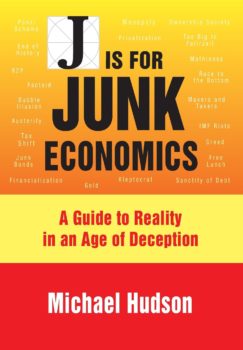 Michael Hudson: Nobody installed him; he installed himself. I don’t think most people expected him to win. If you look at the odds that professional bookies and oddsmakers gave from the time he announced his candidacy, most people thought that sleepy Jeb Bush would get the nomination, and that Bush then would lose to Hillary. So there were indeed attempts to install Hillary or Bush. But nobody tried to install Trump. He made an end run around them, by straight talk, humor and celebrityhood.
Michael Hudson: Nobody installed him; he installed himself. I don’t think most people expected him to win. If you look at the odds that professional bookies and oddsmakers gave from the time he announced his candidacy, most people thought that sleepy Jeb Bush would get the nomination, and that Bush then would lose to Hillary. So there were indeed attempts to install Hillary or Bush. But nobody tried to install Trump. He made an end run around them, by straight talk, humor and celebrityhood.
He didn’t have advisors that he would listen to, because he’s always been a one-man show. And he doesn’t really know what he’s doing economically. He knows how to cheat people, victimize suppliers, and how to make money in real estate simply by not paying suppliers, and by borrowing from banks and not paying them. But he has no idea that you can’t run an economy this way. Being a real estate mafioso isn’t the same thing as running a whole economy. Trump has no idea and I don’t think anyone knows how to control him, except maybe Fox News.
Wall Street vs. the “real” economy: Which turns out to be more real?
Bonnie Faulkner: What is going on with the ruling class in the United States? Does anybody in its ranks know how to run an economy?
Michael Hudson: The problem is that running an economy to help the people and raise living standards, and even to lower the cost of living and doing business, means not running it to help Wall Street. If someone knows how to run an economy, the financial sector wants to keep them out of any public office. High finance is short-term, not long-term. It plays the hit-and-run game, not the much harder task of creating a framework for tangible economic growth.
Wall Street’s public relations office is the University of Chicago...
You can do one of two things: You can help labor or you can help Wall Street. If running the economy means helping labor and improving living standards by giving better medical care, this is going to be at the expense of the financial sector and short-term corporate profits. So the last thing you want to do is have somebody run the economy for its own prosperity instead of for Wall Street’s purpose.
At issue is who’s going to do the planning. Will it be elected public officials in the government, or Wall Street? Wall Street’s public relations office is the University of Chicago. It claims that a free market is one where rich Wall Street investors and the financial class run an economy. But if you let people vote and democratically elect governments to regulate, that’s called “interference” in a free market. This is the fight that Trump has against China. He wants to tell it to let the banks run China and have a free market. He says that China has grown rich over the last fifty years by unfair means, with government help and public enterprise. (sic) In effect, he wants Chinese to be as threatened and insecure as American workers. They should get rid of their public transportation. They should get rid of their subsidies. They should let a lot of their companies go bankrupt so that Americans can buy them. They should have the same kind of free market that has wrecked the U.S. economy.
China doesn’t want that kind of a free market, of course. It does have a market economy. It is actually much like the United States was in its 19th-century industrial takeoff, with strong government subsidy.
U.S. changing monetary strategy, from payments-surplus to deficit status
Bonnie Faulkner: In your seminal work from 1972, Super Imperialism: The Economic Strategy of American Empire, you write: “Whereas U.S. domination of the world economy stemmed from 1920 through 1960 from its creditor position, its control since the 1960s has stemmed from its debtor position. Not only have the tables been turned, but U.S. diplomats have found that their leverage as the world’s major debtor economy is fully as strong as that which formerly had reflected its net creditor position.” This sounds counter-intuitive. Could you break it down? Let’s start with 1920 through 1960. How was the United States able to dominate the world economy from its creditor position?
Michael Hudson: The U.S. creditor position really began after World War I, based on the money it lent to the Allies before it joined the war. When the war ended, U.S. diplomats told England and France to pay us for the arms they had bought early on. But in the past, for centuries, the victors usually forgave all the debts among each other once a war was over. For the first time, America insisted that the Allies pay for the military support it had sold them before joining them.
The European Allies were pretty devastated by the war, and they turned to Germany and insisted on reparations that quickly bankrupted Germany. Germany bankrupted its economy trying to pay England and France, which simply sent it on to pay the United States. Their balance of payments was in deficit, and their currencies were going down. American investors saw an opportunity to buy up their industry. Gold was the measure of power, the backing for domestic money and credit and hence capital investment.
America was much more productive, not having suffered war damage here. Between the end of World War II and 1950 when the Korean War broke out, America accumulated over 75 percent of the world’s monetary gold. The United States had heavy agricultural exports, growing industrial exports, and enough money to buy up the leading industries of Europe and Latin America and other countries.
But beginning in 1950 with the Korean War, the U.S. balance of payments moved into deficit for the first time. It got even worse when President Eisenhower decided that America had to support French colonialism in Southeast Asia, in French Indochina–Vietnam and Laos. By the time the Vietnam War escalated in the 1960s, the dollar was running large balance-of-payments deficits. Every week on Wall Street we would watch the gold supply go down, losing gold to countries that weren’t at war, like France and Germany. They were cashing in the excess dollars that were being spent by the U.S. military. By the 1960s it became clear that America was on a trajectory to run out of gold within a decade because of this overseas war spending.
It finally did, by August 1971 when President Nixon stopped selling gold on the London exchange and the price was allowed to soar far above $35 an ounce. The U.S. balance-of-payments was still running a deep deficit because of the fighting in Southeast Asia and elsewhere, creating a permanent balance-of-payments deficit. The private sector was just in balance during the 1950s and 1960s. The entire deficit was military.
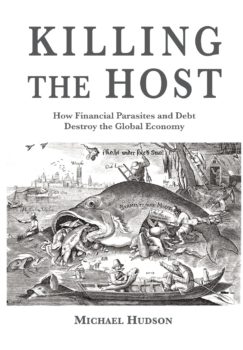 When America went off gold, people began to wonder what was going to happen. Many predicted an economic doomsday. It was losing its ability to rule the world through gold. But what I realized (and was the first to publish) was that if countries no longer could buy and hold gold in their international reserves, what were they going to hold? There was only one asset that they could hold: U.S. Government securities, that is, Treasury bonds.
When America went off gold, people began to wonder what was going to happen. Many predicted an economic doomsday. It was losing its ability to rule the world through gold. But what I realized (and was the first to publish) was that if countries no longer could buy and hold gold in their international reserves, what were they going to hold? There was only one asset that they could hold: U.S. Government securities, that is, Treasury bonds.
A Treasury bond is a loan to the U.S. Treasury. When a foreign central bank buys a bond, it finances the domestic U.S. budget deficit. So the balance of payments deficit ends up financing the domestic budget deficit.
The result is a circular flow of military spending recycled by foreign central banks. After 1971 the United States continued to spend abroad militarily, and in 1974 the OPEC countries quadrupled the price of oil. At that time the United States told Saudi Arabia that it could charge whatever it wanted for its oil, but it had to recycle all its net dollar earnings. The Saudis were not to buy gold. The Saudis were told that it would be an act of war if they didn’t recycle into the American economy the dollars they received for their oil exports. They were encouraged to buy U.S. Treasury bonds but, could also buy other U.S. bonds and stocks to help push up the stock and bond markets here while supporting the dollar.
The United States kept its own gold stock, while wanting the rest of the world to hold its savings in the form of loans to the United States. So the dollar didn’t go down. Other countries that were receiving dollars simply recycled them to buy U.S. financial securities.
What would have happened if they wouldn’t have done this? Let’s say you’re Germany, France or Japan. If you don’t recycle your dollar receipts back to the U.S. economy, your currency is going to go up. Dollar inflows from export sales are being converted into your currency, increasing its exchange rate. But by buying U.S. bonds or stocks, bid the price of dollars back up against your own currency.
So, when the United States runs a balance-of-payments deficit under conditions where other countries keep their foreign reserves in dollars, the effect is for other countries to keep their currencies’ exchange rates stable–mainly by lending to the U.S. government. That gives the United States a free ride. It can encircle the world with military bases, and the dollars that this costs are returned to the United States.
Imagine writing IOUs when you go out to spend at a store or restaurant–but your IOUs are never going to be collected! The store might say, “We have an IOU from Bonnie Faulkner. Let’s keep it as our savings. Instead of putting it in the bank or asking for payment in real money, we’re just going to keep collecting these IOUs from Bonnie Faulkner.” Corporations call such IOUs and trade credit “receivables.” Now, suppose you went on a spending spree and gave the store a billion dollars’ worth of your IOUs. There’s no way that you could pay off this billion dollars. In that case the stores receiving these IOUs would say, “Well, we really don’t want to foreclose on Bonnie, because we know that she can’t pay. We’d lose the value of receivables on the asset side of our balance sheet–all these IOUs that we’ve been collecting.
That’s essentially what foreign countries are saying about their buildup of dollars. The U.S. position is, in effect, that we are not going to repay any foreign country the dollar debt we owe them. As Treasury Secretary John Connolly said, “It’s our dollars, but your problem.” Other countries have to pay us or else we’ll bomb them. The military dimension to this arrangement is the U.S. position that it would be an act of war if other countries don’t keep spending their export earnings on loans or U.S. stocks and bonds.
That’s what makes the United States the “exceptional country.” The value of our currency is based on other countries’ savings. The money they save has to be held in the form of dollars or securities that we’re never going to repay, even if we could.
This is a huge free ride. You’d think that Donald Trump would want to keep it going. But he claims that China is manipulating its currency by recycling its dollars into loans to the U.S. Treasury. What does he mean by that? China is earning a lot of dollars by exporting its goods to the United States. What does it do with these dollars? It tried to do what America did with Europe and South America: It tried to buy American companies. But the United States blocked it from doing this, on specious national security grounds. The government claims that our national security would be threatened if China would buy a chain of filling stations, as it wanted to do in California. The United States thus has a double standard, claiming that it is threatened if China buys any company, but insisting on its right to buy out the commanding heights of foreign economies with its electronic dollar credit.
That leaves China with only one option: It can buy U.S. Treasury bonds, lending its export earnings to the U.S. Treasury.
Trump is now driving other countries out of the dollar orbit
China now realizes that the U.S. Treasury isn’t going to repay. Even if it wanted to recycle its export earnings into Treasury bonds or U.S. stocks and bonds or real estate, Donald Trump now is saying that he doesn’t want China to support the dollar’s exchange rate (and keep its own exchange rate down) by buying U.S. assets. We’re telling China not to do what we’ve told other countries to do for the past forty years: to buy U.S. securities. Trump accuses countries of artificial currency manipulation if they keep their foreign reserves in dollars. So he’s telling them, and specifically China, to get rid of their dollar holdings, not to buy dollars with their export earnings anymore.
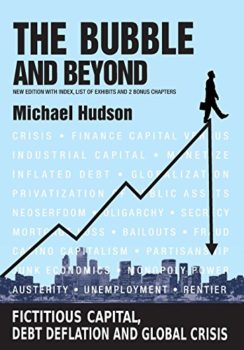 So China is buying gold. Russia also is buying gold and much of the world is now in the process of reverting to the gold-exchange standard (meaning that gold is used to settle international payments imbalances, but is not connected to domestic money creation). Countries realize that there’s a great advantage of the gold-exchange standard: There’s only a limited amount of gold in the world’s central banks. This means that any country that wages war is going to run such a large balance-of-payments deficit that it’s going to lose its gold reserves. So reviving the role of gold may prevent any country, including the United States, from going to war and suffering a military deficit.
So China is buying gold. Russia also is buying gold and much of the world is now in the process of reverting to the gold-exchange standard (meaning that gold is used to settle international payments imbalances, but is not connected to domestic money creation). Countries realize that there’s a great advantage of the gold-exchange standard: There’s only a limited amount of gold in the world’s central banks. This means that any country that wages war is going to run such a large balance-of-payments deficit that it’s going to lose its gold reserves. So reviving the role of gold may prevent any country, including the United States, from going to war and suffering a military deficit.
The irony is that Trump is breaking up America’s financial free ride–its policy of monetary imperialism–by telling counties to stop recycling their dollar inflows. They’ve got to de-dollarize their economies.
The effect is to make these economies independent of the United States. Trump already has announced that we won’t hire Chinese in our IT sectors or let Chinese study subjects at university that might enable them to rival us. So our economies are going to separate.
In effect, Trump has said that if we can’t win in a trade deal, if we can’t make other countries lose and become more dependent on U.S. suppliers and monopoly pricing, then we’re not going to sign an agreement. This stance is driving not only China but Russia and even Europe and other countries all out of the U.S. orbit. The end result is going to be that the United States is going to be isolated, without being able to manufacture like it used to do. It’s dismantled its manufacturing. So how will it get by?
Some population figures were released a week ago showing the middle of America is emptying out. The population is moving from the Midwestern and mountain states to the East and the West coasts and the Gulf Coast. So Trump’s policies are accelerating the de-industrialization of the United States without doing anything to put new productive powers in place, and not even wanting other countries to invest here. The German car companies see Trump putting tariffs on the imported steel they need to build cars in the United States. It built them here to get around America’s tariff barriers against German and other automobiles. But now Trump is not even letting them import the parts that they need to assemble these cars in the non-unionized plants they’ve built in the South.
What can they do? Perhaps they’ll propose a trade with General Motors and Chrysler. The Europeans will get the factories that American companies own in Europe, and give them their American factories in exchange.
This kind of split is occurring without any attempt to make American labor more competitive by lowering its cost of housing, or the price of its health insurance and medical care, or its transportation costs or the infrastructure costs. So America is being left high and dry as a high-priced economy in a nationalistic world, while running a huge balance-of-payments deficit to support its military spending all over the globe.
Bonnie Faulkner: So it sounds like when the United States went off the gold standard, the dollar basically replaced gold as the main asset in which foreign governments could hold their assets. Now you’re saying that when there was no more gold standard, if foreign economies didn’t buy U.S. Treasuries, the price of their currency would rise and make them uncompetitive.
Michael Hudson: Yes. Imagine if Americans would have to pay more and more dollars to buy German cars. There’s going to be a larger demand for German currency, the euro, whose exchange rate would rise. That was happening throughout the 1960s and 1970s, before the euro. The only way that Germany could keep down the value of its mark was to buy something that cost dollars. It didn’t buy American exports, because America already was making and exporting less and less, except for food–and Germany can only eat so much wheat and soybeans. So the only thing that Germany could buy that was priced in dollars were U.S. Treasury bonds. That kept the German mark from rising even more rapidly, and kept the balance of payments in balance.
Japan had a similar problem. The Japanese tried to buy U.S. real estate, but they didn’t have any idea of what made real estate valuable here. They lost a reported billion dollars on buying Rockefeller Center, not realizing that the building was separate from the land value, and the land was owned by Columbia University. The building itself was running at a deficit. Most of the rental value paid was to the owner of the land’s groundrent. The Japanese had no idea of how American real estate worked.
The euro is only a satellite currency of the U.S. dollar
Some Americans worried that the euro might become a rival to the dollar. After all, Europe is not de-industrializing. It is moving forward and producing better cars, airplanes and other exports. So the United States persuaded foreign politicians to cripple the euro by making it an austerity currency, creating so few government bonds that there’s no euro vehicle large enough for foreign countries to keep their foreign reserves in. The United States can create more and more dollar debt by running a budget deficit. We can follow Keynesian policies by running a deficit to employ more labor. But the eurozone refuses to let countries run a budget deficit of more than 3 percent of its GDP. Now running more than 3 percent of their GDP. That level is very marginal compared to the United States. And if you’re trying not to run any deficit at all–and even if you keep it less than 3%–then you’re imposing austerity on your country, keeping your employment down. You’re stifling your internal market, cutting your throat by being unable to create a real rival to the dollar. That’s why Donald Rumsfeld called Europe a dead zone, and why the only alternatives for a rival currency are the Chinese yuan. They’re moving into a gold-based currency area along with Russia, Iran and other members of the Shanghai Cooperation Organization.
Bonnie Faulkner: The European Union not allowing European countries within the eurozone to not run deficits more than 3 percent was basically cutting their own throat. Why would they do such a thing?
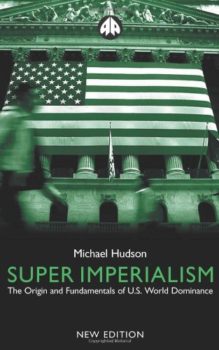 Michael Hudson: Because the heads of the Central Bank are fighting a class war. They look at themselves as financial generals in the economic fight against labor, to hurt the working class, lower wages and help their political constituency, the wealthy investing class. Europe always has had a more vicious class war than the United States does. It’s never really emerged from its aristocratic post-feudal system. Its central bankers and universities follow the University of Chicago free-market school, saying that the way to get rich is to make your labor poorer, and to create a government where labor doesn’t have a voice. That’s Europe’s economic philosophy, and it’s why Europe has not matched the growth that China and other countries are experiencing.
Michael Hudson: Because the heads of the Central Bank are fighting a class war. They look at themselves as financial generals in the economic fight against labor, to hurt the working class, lower wages and help their political constituency, the wealthy investing class. Europe always has had a more vicious class war than the United States does. It’s never really emerged from its aristocratic post-feudal system. Its central bankers and universities follow the University of Chicago free-market school, saying that the way to get rich is to make your labor poorer, and to create a government where labor doesn’t have a voice. That’s Europe’s economic philosophy, and it’s why Europe has not matched the growth that China and other countries are experiencing.
Bonnie Faulkner: So it sounds like then the United States has been able to dominate the world economy since 1971 from a debtor position.
Michael Hudson: When it was losing gold, from 1950 to 1971, that wasn’t dominating; that was losing America’s gold supply to France, Germany, Japan and other countries. Only when it stopped the gold-exchange standard and left countries with no alternative for their international savings but to buy U.S. Treasury bonds or other securities was it able to pay for its military spending without losing its power.
Since 1971, world diplomacy has essentially been backed by American military power. It’s not a free market. Military power keeps countries in a financial strait jacket in which the United States can run into debt without having to repay it. Other countries that run payments deficits are not allowed to expand their economies, either to rival the United States or even to improve living standards for their labor force. Only countries outside the U.S. orbit–China, and in principle Russia and some other countries in Asia–are able to increase their living standards and capital investment and technology by being free of this globalized financial class war.
Bonnie Faulkner: In Super Imperialism you write that, “Pressures to create a New International Economic Order collapsed by the end of the 1970s.” Are you saying that other countries simply gave up and acquiesced to American monetary imperialism? What happened?
Michael Hudson: I’m told that there was wholesale bribery. Officials in the Reagan administration told me that they just paid off foreign officials to support the U.S. position, not a New International Economic Order. U.S. agencies maneuvered within the party politics of European and Near Eastern countries to promote pro-American officials and sideline those who did not agree to act as U.S. satellites. A lot of money was involved in this meddling.
So the United States has corrupted democratic politics throughout Europe and the Near East, and much of Asia. That has succeeded in sterilizing foreign independence in the United States. Meanwhile, Thatcher’s and Reagan’s neoliberal ideas were promoted instead of the kind of mixed economy that Roosevelt and social democracy had been pressing for fifty years.
Who will plan economies: Financial managers, or democratic governments?
Bonnie Faulkner: If there were pressures to create a New International Economic Order in the 1970s, what was this new order looking to achieve?
Michael Hudson: Other countries wanted to do for their economies what the United States has long done for its own economy: to use their governments’ deficit spending to build up their infrastructure, raise living standards, create housing and promote progressive taxation that would prevent a rentier class, a landlord and financial class from taking over economic management. In the financial field, they wanted governments to create their own money, to promote their own development, just like the United States does. The role of neoliberalism was the opposite: it was to promote the financial and real estate sector and monopolies to take economic management away from government.
So the real question from the 1980s on was about who would be the basic planning center of society. Would it be the financial sector–the banks and bondholders, whose interest is really the One Percent that own most of the banks’ bonds and stocks? Or, is it going to be governments trying to subsidize the economy to help the 99 Percent grow and prosper? That was the social democratic view opposed by Thatcherism and Reaganism.
The international drive to de-dollarize
Bonnie Faulkner: Was this pressure that blocked a New International Economic Order brought on by the United States going off the gold-exchange standard?
Michael Hudson: No. It was a reaction against the U.S. policy of siphoning off the commanding heights of foreign economies. The United States wants to control their raw-materials exports, especially their oil and gas. It wants to control their financial system, so that all of their economic gains will go to foreign investors, mainly U.S. investors. It wants to turn other economies into service economies to the United States, and to make them into a kind of super-NATO military alliance that will oppose any country that does not want to be part of the U.S.-centered unilateral global order.
Bonnie Faulkner: How does today’s monetary imperialism–super imperialism–differ from the imperialism of the past?
Michael Hudson: It’s a higher stage of imperialism. The old imperialism was colonialism. You would come in and use military power to install a client ruling class. But each country would have its own currency. What has made imperialism “super” is that America doesn’t have to colonize another country. It doesn’t have to invade a country or actually go to war with it. All it needs is to have the country invest its savings, its export earnings in loans to the United States Government. This enables the United States to keep its interest rates low and enable American investors to borrow from American banks at a low rate to buy up foreign industry and agriculture that’s yielding 10 percent, 15 percent or more. So American investors realize that despite the balance-of-payments deficit, they can borrow back these dollars at such a low rate from foreign countries–paying only 1 percent to 3 percent on the Treasury bonds they hold–while pumping dollars into foreign economies by buying up their industry and agriculture and infrastructure and public utilities, making large capital gains. The hope is that and soon, we’ll earn our way out of debt by this free ride arrangement.
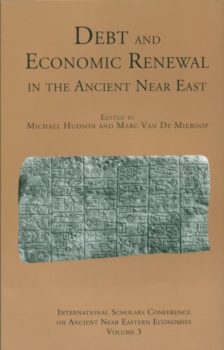 Imperialism is getting something for nothing. It is a strategy to obtain other countries’ surplus without playing a productive role, but by creating an extractive rentier system. An imperialist power obliges other countries to pay tribute. Of course, America doesn’t come right out and tell other countries, “You have to pay us tribute,” like Roman emperors told the provinces they governed. U.S. diplomats simply insist that other countries invest their balance-of-payments inflows and official central-bank savings in U.S. dollars, especially U.S. Treasury IOUs. This Treasury-bill standard turns the global monetary and financial system into a tributary system.
Imperialism is getting something for nothing. It is a strategy to obtain other countries’ surplus without playing a productive role, but by creating an extractive rentier system. An imperialist power obliges other countries to pay tribute. Of course, America doesn’t come right out and tell other countries, “You have to pay us tribute,” like Roman emperors told the provinces they governed. U.S. diplomats simply insist that other countries invest their balance-of-payments inflows and official central-bank savings in U.S. dollars, especially U.S. Treasury IOUs. This Treasury-bill standard turns the global monetary and financial system into a tributary system.
That is what pays the costs of U.S. military spending, including its 800 military bases throughout the world, and its foreign legion of Isis, Al Qaeda fighters and “color revolutions” to destabilize countries that don’t adhere to the dollar-centered global economic system.
Bonnie Faulkner: You write: “Today it would be necessary for Europe and Asia to design an artificial, politically created alternative to the dollar as an international store of value. This promises to become the crux of international political tensions for the next generation.” How does the world break out of this double-standard dollar domination?
Michael Hudson: It’s already coming about. And Trump is a great catalyst speeding departing guests. China and Russia are reducing their dollar holdings. They don’t want to hold American Treasury bonds, because if America goes to war with them, it will do to them what it did to Iran. It will just keep all the money, not pay back the investment China has kept in U.S. banks and the Treasury. So they’re getting rid of the dollars that they hold. They’re buying gold, and are moving as quickly as they can to be independent of any reliance on U.S. exports. They are building up their military, so that if the United States tries to threaten them, they can defend themselves. The world is fracturing.
Bonnie Faulkner: What are foreign countries like China and Russia using to buy gold? Are they buying it with dollars?
Michael Hudson: Yes. They earn dollars or euros from what they’re exporting. This money goes into the central bank of China, because Chinese exporters want domestic yuan to pay their own workers and suppliers. So they go to the Bank of China and they exchange their dollars for yuan. The Bank of China, the central bank, then decides what to do with this foreign currency. They may go into the open market and buy gold. Or, they may spend it in foreign countries, on the Belt and Road Initiative to build a railway and steamship infrastructure and port development to help China’s exporters integrate their economy with others and ultimately with Europe, replacing the United States as customer and supplier. They see the United States as a dying economy.
Bonnie Faulkner: Can the Chinese build up their Belt and Road infrastructure projects with dollars?
Michael Hudson: No, they are getting rid of dollars. They already are receiving such a large surplus each year that they only use the dollars to buy gold or some goods, such as Boeing airplanes, but mostly food and raw materials. When China buys iron from Australia, for instance, they sell dollars from their foreign-exchange reserves and buy Australian currency to pay Australians for the iron ore that they import. They use dollars to pay other countries that are still part of the dollar area and still willing to keep adding these dollars to their official monetary reserves instead of holding gold.
Bonnie Faulkner: Well, it is kind of surprising, Michael, that countries haven’t started doing this a lot sooner.
Michael Hudson: There has been political pressure not to withdraw from the dollar-debt system. If countries act independently, they risk being overthrown. It takes a strong government to resist American interference and dirty tricks to put its own country first instead of following the U.S. advisors and agents who pay them to serve the U.S. economy rather than their own, or to resist brainwashing by University of Chicago’s junk economics.
Bonnie Faulkner: How far along is the dollar’s demise as the world’s reserve currency?
Michael Hudson: It’s already slowing. Trump is doing everything he can to accelerate it, by threatening that if foreign countries continue to recycle their export earnings into dollars (raising the dollar’s exchange rate), we’ll accuse them of manipulating their currency. So he would like to end it all by the end of his second term in 2024.
Bonnie Faulkner: What would the United States look like if the dollar is no longer the world’s reserve currency?
Michael Hudson: If it continues to let Wall Street do the economic planning, the economy will look like that of Argentina.
Bonnie Faulkner: And what does Argentina look like?
Michael Hudson: A narrow oligarchy at the top, keeping labor at the bottom, taking away labor’s rights to unionize–an economy whose financial and military sectors have won the class war.
Bonnie Faulkner: China, with its Belt and Road infrastructure project, is now buying gold on the open market, as are a number of other countries. Has the Western banking system penetrated China? And if so, how would you characterize China’s banking system?
Michael Hudson: There’s an attempt by the United States to penetrate China. In the recent trade agreements China did permit U.S. banks to create their own credit. I’m not sure that this is going to really take off, now that Trump is accelerating the trade war. But basically, in America you have private banks extending credit to corporations. In China you have the government banks extending the loans. That saves China from having a financial crisis in the way that the United States does.
About 12 percent of American companies are said to be zombie companies. They’re already insolvent, not able to make a profit after paying their heavy debt service. But banks are still giving them enough credit to stay in business, so they won’t have to go bankrupt and create a crisis. China doesn’t have that problem, because when Chinese industry and factories are not able to pay, the public Bank of China can simply forgive the debt. Its choice is clear: Either it can let companies go bankrupt and be sold at a low price to some buyer, mainly an American; or, it can wipe the bad debts off the books.
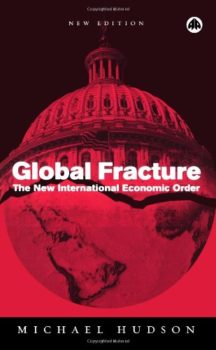 If China had been crazy enough to have student loans and leave its graduates impoverished instead of providing free universities, China’s central bank could simply write off the student loans. No investors would lose, because the banks are owned by the government. Its position is, “If you’re a factory, we don’t want you to have to close down and unemploy your labor. We’ll just write down the debt. And if your employees are having a really hard time, we’ll just write down their debts, so that they can spend their money on goods and services to help expand our internal market.”
If China had been crazy enough to have student loans and leave its graduates impoverished instead of providing free universities, China’s central bank could simply write off the student loans. No investors would lose, because the banks are owned by the government. Its position is, “If you’re a factory, we don’t want you to have to close down and unemploy your labor. We’ll just write down the debt. And if your employees are having a really hard time, we’ll just write down their debts, so that they can spend their money on goods and services to help expand our internal market.”
America’s banks are owned by the stockholders and bondholders, who would never let Chase Manhattan or Citibank or Wells Fargo just forgive their various categories of loans. That’s why public banking is so much more efficient from an economy-wide level than private banks. It’s why banking should be a public utility, not privatized.
Bonnie Faulkner: Can you explain further how writing down debts is good for the economy?
Michael Hudson: Well, think of the alternative to writing down debts. If you don’t write down America’s student debts, the graduates are going to have to pay so much of the student debt service (now to the government) that they’re not going to have enough money to be able to buy a house, they won’t have enough money to get married, they won’t have enough money to buy goods and services. It means that most people who can buy houses are graduates with trust funds–students whose parents are rich enough that they didn’t have to take out a student loan to pay for their children’s education. These hereditary families are rich enough to buy them their own apartment.
That’s why the American economy is polarizing between people who inherit enough money to be able to have their own housing and budgets free of student loans and other debts, compared to families that are debt strapped and running deeper into debt and without much savings. This financial bifurcation is making us poorer. Yet neoliberal economic theory sees this as a competitive advantage. For them, and for employers, poverty is not a problem to be solved; it is the solution to their own aim of profitability.
Bonnie Faulkner: So is this whole privatization scheme, particularly the privatization of the banking system and privatizing a lot of infrastructure what’s bankrupting the United States?
Michael Hudson: Yes, just as it’s bankrupted England and other countries that followed Thatcherism or the neo-liberal philosophy since about 1980.
Bonnie Faulkner: Michael Hudson, thank you again.
Michael Hudson: It’s always a pleasure to have these discussions.
Bonnie Faulkner: I’ve been speaking with Dr. Michael Hudson. Today’s show has been: De-Dollarizing the American Financial Empire. Dr. Hudson is a financial economist and historian. He is President of the Institute for the Study of Long-Term Economic Trend, a Wall Street Financial Analyst and Distinguished Research Professor of Economics at the University of Missouri, Kansas City. His 1972 book, Super Imperialism: The Economic Strategy of American Empire, the subject of today’s broadcast, is posted in PDF format on his website at michael-hudson.com. He is also author of Trade, Development and Foreign Debt, which is the academic sister volume to Super Imperialism. Dr. Hudson acts as an economic advisor to governments worldwide on finance and tax law. Visit his website at michael-hudson.com.Guns and Butter is produced by Bonnie Faulkner, Yarrow Mahko and Tony Rango. Visit us at gunsandbutter.org to listen to past programs, comment on shows, or join our email list to receive our newsletter that includes recent shows and updates. Email us at faulkner@gunsandbutter.org. Follow us on Twitter at gandbradio.
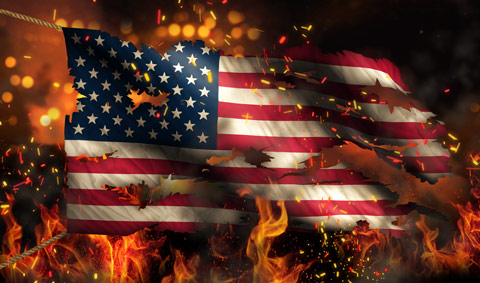 As the matrix around us implodes we need to let go of our attachment to it or we'll be sucked into its gravitational collapse. We'll find ourselves trapped in an eternal war, fighting for something that was never ours to begin with.
As the matrix around us implodes we need to let go of our attachment to it or we'll be sucked into its gravitational collapse. We'll find ourselves trapped in an eternal war, fighting for something that was never ours to begin with. 


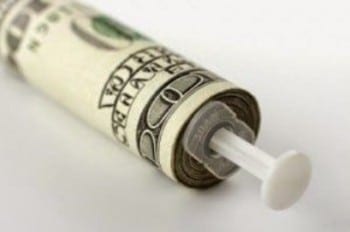
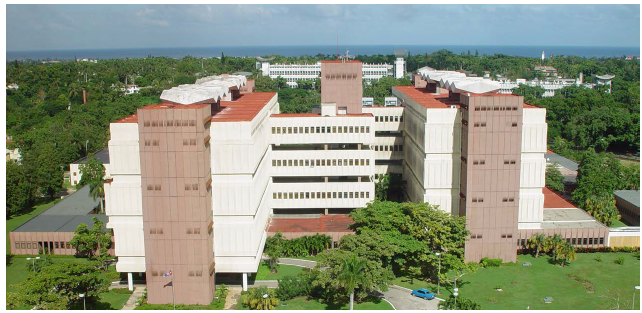

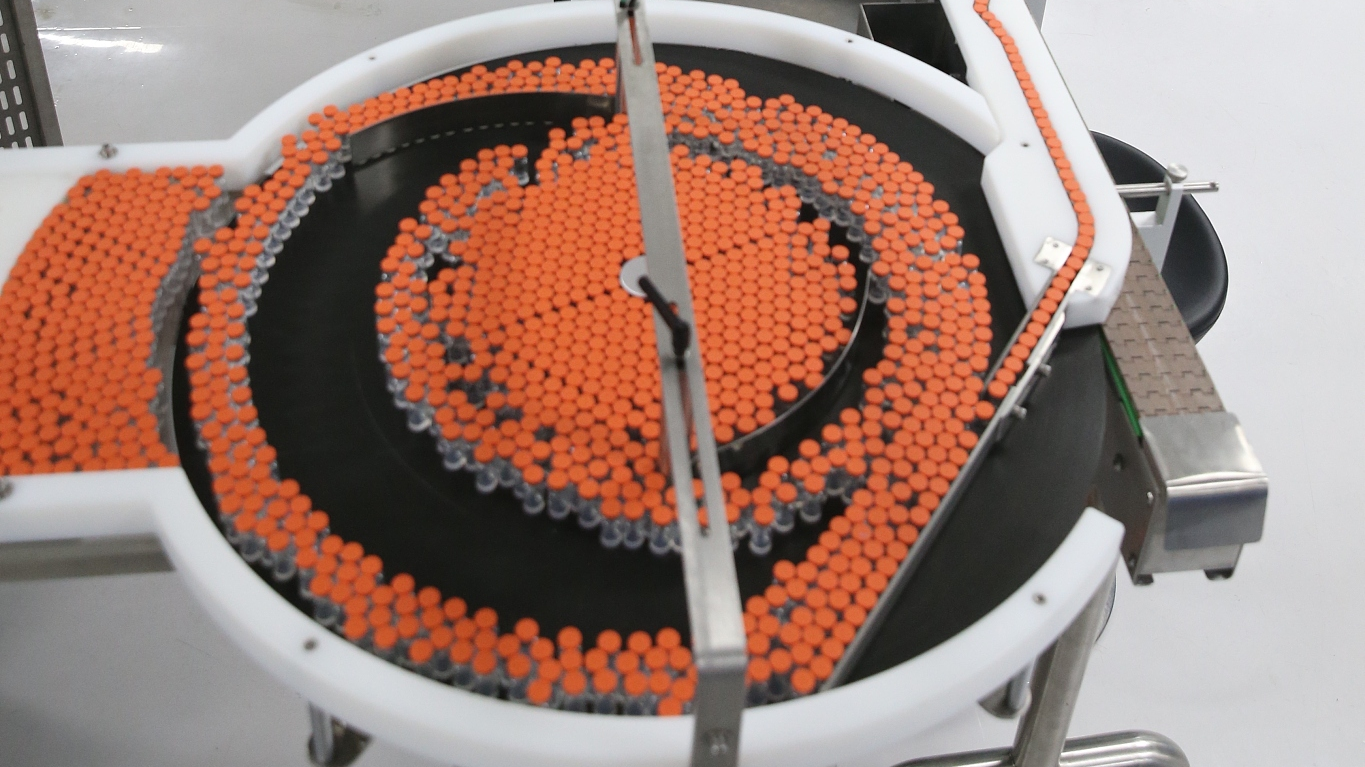












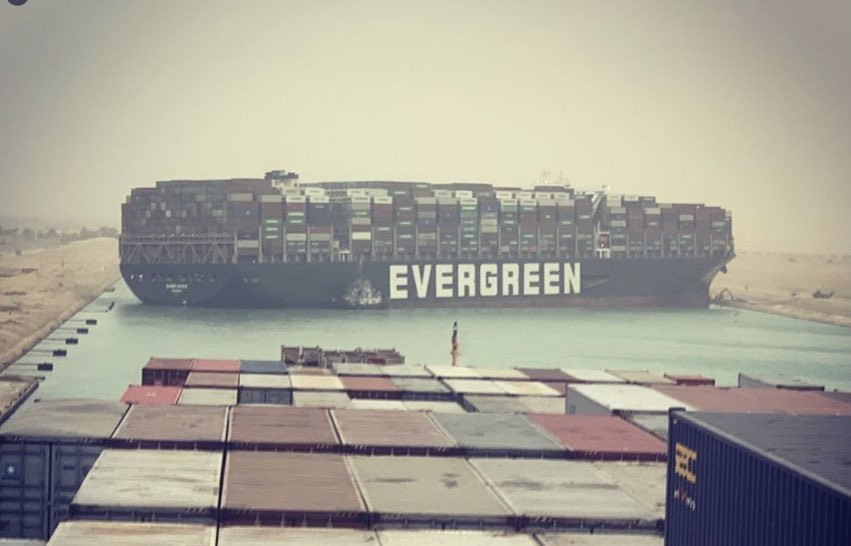
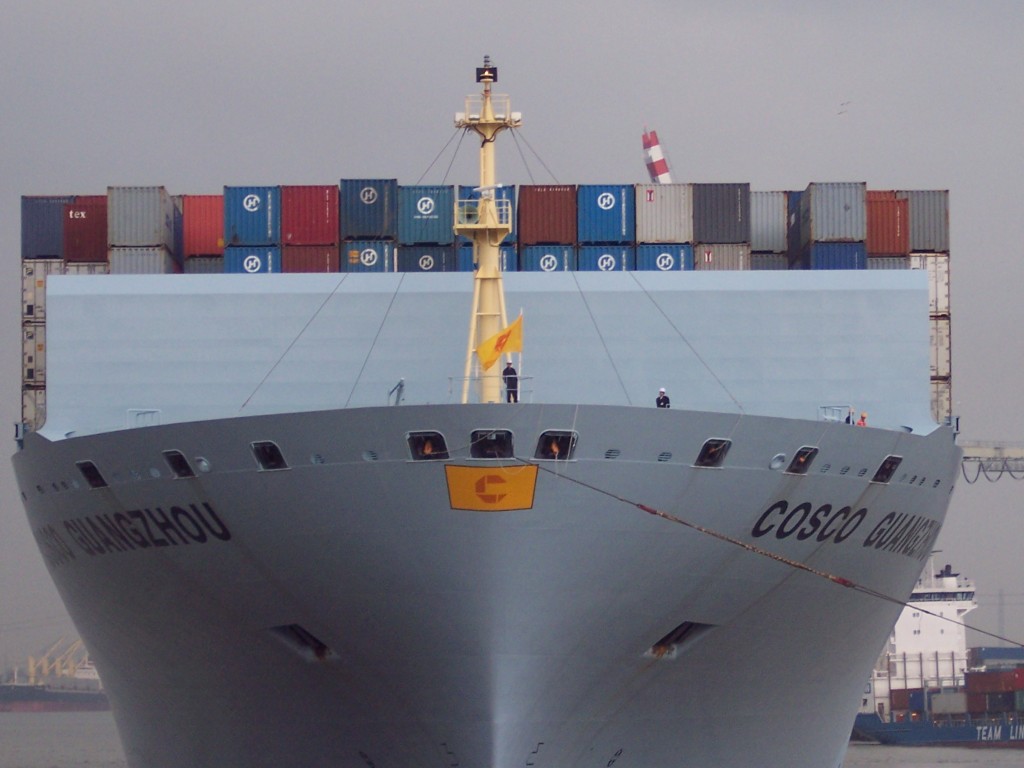





Thanks b! i just wrote a post on this in the open thread...see below... not sure why tugs weren't used to support its passage here..
@ suez canal issue.. i find it fascinating myself.... a boat with the name 'evergreen' in big letters stuck in a narrow man made channel of sand.... if that is not a metaphor for today with the conflict of economy trumping environment in spite of all the worlds concern or lack of concern for climate change and etc. etc. - i don't know what is... it is like planet earth sending a message to the inhabitants, but i suspect no one is listening in the corridors of empire building, or endless subservience to the religion of consumerism as the case may be... it seems something more radical has to happen for anything to change here... people and especially those in positions of power - refuse to alter there course.. the planet is headed towards a sandbar of epic proportions... the water will probably be missing in all of it too... my rosy scenario for today!
Posted by: james | Mar 25 2021 17:04 utc | 151"
Hey Bernhard.. I guess you are not alone in feeling depressed, and lacking energy. But that is part of the last year experience too. In the next 1-3 months you, me and many others here in Germany will finally be able to get vaccination. And things will become better when the winter ends and spring lightens us up.